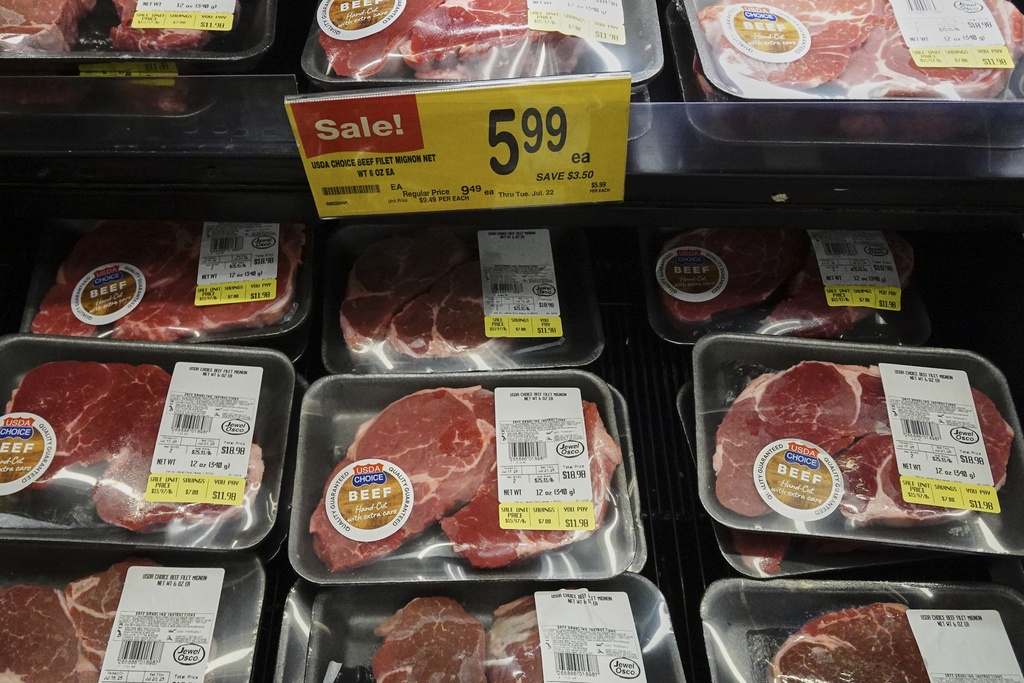Australia Eases US Beef Import Rules, Trump Calls It a Ban

Australia Eases Restrictions on U.S. Beef Imports
Australia has taken a significant step in easing restrictions on U.S. beef imports, a move that has been celebrated by the Trump administration as a major win against what it described as “non-scientific trade barriers.” The decision comes after years of negotiations and concerns over biosecurity, particularly related to mad cow disease, also known as bovine spongiform encephalopathy (BSE).
Agriculture Minister Julie Collins announced that the changes would not compromise Australia’s biosecurity standards. She emphasized that the country supports open and free trade, noting that the cattle industry has benefited significantly from such policies.
U.S. Secretary of Agriculture Brooke L. Rollins praised the move, calling it a “major trade breakthrough” that allows U.S. beef producers greater access to the Australian market. In a statement under the headline “Make Agriculture Great Again Trade Wins,” she highlighted the safety and quality of American beef, stating that it is the “safest, healthiest beef in the world.”
Rollins criticized the previous restrictions, arguing that they were based on non-scientific grounds and had prevented U.S. beef from being sold to Australian consumers for two decades. She added that this decision reflects the Trump administration's efforts to secure better market access for American farmers and ranchers, aiming to usher in a new era of prosperity for agriculture.
U.S. Beef Import Controls Meet Australian Standards
Australia has allowed U.S. beef imports since 2019. However, it had previously banned beef from Canada and Mexico due to concerns about BSE. Recently, the U.S. introduced stricter movement controls to track all cattle from Mexico and Canada back to their farms of origin. These measures have satisfied Australian authorities, who believe they effectively manage biosecurity risks.
The timing of the new restrictions has not yet been finalized. However, the decision follows a period of tension between the U.S. and Australia over trade policies. In April, President Trump announced tariffs of at least 10% on Australian imports, with steel and aluminum facing a 50% tariff. He criticized Australia for banning U.S. beef, despite the fact that Australia imported $3 billion worth of Australian beef from the U.S. the previous year.
Concerns Over Industry Impact
Despite the positive response from the U.S., some Australian lawmakers have raised concerns about the potential impact on the domestic cattle industry. Opposition lawmaker David Littleproud expressed suspicion that the government might be compromising the industry to appease the Trump administration.
He called for transparency and scientific validation of the decision, suggesting that an independent panel review could help build confidence among both the industry and the public. He emphasized that the issue is not just about animal welfare but also about human health, given the risk of BSE entering Australia.
Confidence in Biosecurity Measures
Will Evans, CEO of Cattle Australia, which represents over 52,000 grass-fed beef producers, expressed confidence in the government’s approach. He noted that the agricultural department had conducted a thorough scientific assessment before making its decision. Evans stressed the importance of trusting the department’s expertise, given the massive size of the Australian beef industry, which is valued at around $75 billion.
Rising U.S. Beef Prices
Beef prices in the U.S. have been rising due to factors such as drought and a shrinking domestic cattle herd. According to U.S. government data, the average price of ground beef reached $6.12 per pound in June, up nearly 12% from a year earlier. The average price of all uncooked beef steaks increased by 8% to $11.49 per pound.
However, demand for U.S. beef in Australia is expected to remain low, partly due to the weak Australian dollar. This dynamic could affect the long-term success of the new trade arrangement.
Future Trade Discussions
Australian Prime Minister Anthony Albanese is expected to address the issue of U.S. tariffs when he meets with former President Donald Trump. The two leaders were scheduled to meet during a Group of Seven summit in Canada last month, but Trump left early. A new meeting is expected this year, though no date has been confirmed.
The U.S. and Australia have maintained a bilateral free trade agreement for 20 years, with the U.S. consistently holding a trade surplus with Australia. As the relationship evolves, the new beef import policy could play a key role in shaping future trade dynamics between the two nations.
Post a Comment for "Australia Eases US Beef Import Rules, Trump Calls It a Ban"
Post a Comment